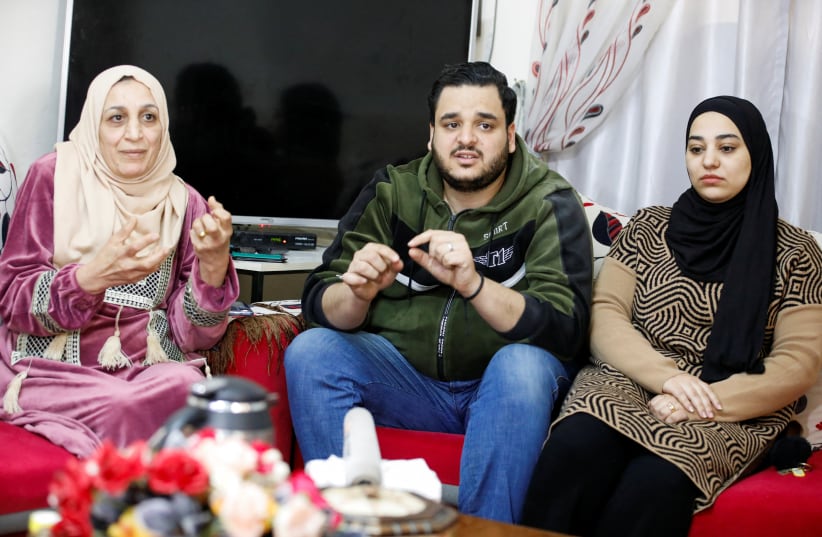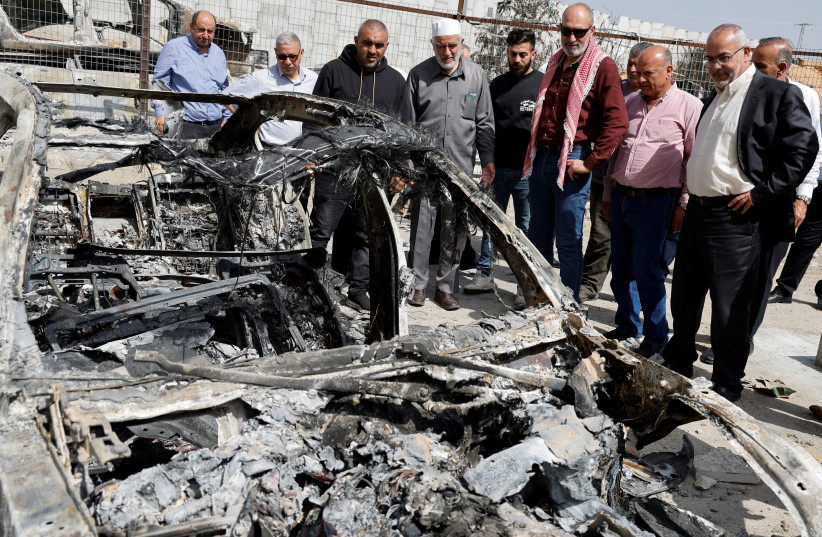Palestinians in the West Bank town of Huwara say a rise in settler attacks has made them fear walking to school, going to work and shopping at the local supermarket.
A settler rampage through the town last month, amid rising tensions in the West Bank, drew worldwide condemnation, with Pentagon chief Lloyd Austin saying on a visit to Israel on Thursday that the United States was "especially disturbed" by settler violence.
Huwara, near a checkpoint on a highway between the West Bank cities of Ramallah and Nablus that links four nearby Israeli settlements, has become a fault line of violence over the years.
Residents of the town and its neighboring villages told Reuters they felt defenseless in the face of the increased attacks, with no protection from either the Israeli army or Palestinian Authority security forces.
"I've lived in Huwara my entire life," said Ghazi Shehadeh, a 58-year-old glazier, as he fitted a glass window into a frame from one of dozens of houses that were recently vandalized. "These attacks are not new, but they have become more intense," he said.
"I want to walk without fear. I want to enjoy a trip out of town. I can't anymore. They (the settlers) will hurl rocks or shoot at us. We don't dare leave anymore because the settlers are in the streets."
The United Nations Office for the Coordination of Humanitarian Affairs (OCHA) recorded 849 settler attacks last year that resulted in casualties or property damage across the West Bank - the highest since it began monitoring cases in 2005.
But the issue has attracted global attention since hundreds of settlers went on a rampage in Huwara on Feb. 26 after a Hamas gunman shot dead two Israeli brothers from the nearby settlement of Har Bracha as they sat in their car.
During the riot, a Palestinian man was killed and dozens of Palestinian houses and cars were torched. Fifteen settlers were arrested, most of whom were released for lack of evidence, but two were in administrative detention and investigations were continuing, a police source said.
Some parties in Prime Minister Benjamin Netanyahu's government criticized the violence and called for people not to take the law into their own hands. One senior army commander described it as a "pogrom," a word normally associated with massacres of Jews in Russia during the 19th and early 20th century.
But days after the rampage, far-right Finance Minister Bezalel Smotrich, who has responsibility for aspects of Israel's West Bank administration, said Huwara should be "erased," before he partially retracted the remark.
For their part, the settlers see Huwara as a "terror village." Nati Rom, a lawyer representing suspects arrested following the attack, said settlers faced constant violence from Palestinians who threw stones at their cars and incited to violence on social media and through calls at the mosque.
Hours after the shooting of the brothers, some Palestinians expressed support for the incident on Facebook and in one post mockingly offered the car the brothers were in for sale.
"Our children have to ride in bulletproof buses, our cars are rock proof, and the other sides never needs to worry because they don't have that," Rom said.
More than half a million Israeli settlers live in the West Bank. Settlers living around Nablus are among the most ideological and many see themselves as exercising a biblical birthright to the West Bank, which Palestinians want as the core of a future state.
Huwara is surrounded by settlements that cut off Palestinian communities from each other and from their land. It veers between periods of relative calm, when Israelis visit Palestinian businesses in the town to buy goods or get their tires changed cheaply, and outbursts of violence.
Huwara residents ‘living on edge’
“There is nothing to do when you are facing armed settlers who are backed by the military.”
Usama Abuzayn
The main road, dotted with signs in Arabic and Hebrew, was now scarred by scorched walls and piles of shattered glass. Soldiers behind barricades aimed their weapons at passing cars, carrying Israeli and Palestinian license plates.
"We're living on edge," said Kayed Awad, a member of the Huwara municipality and the owner of a bathroom appliances store, as he took quick glances at the screen mounted above his desk showing CCTV footage. Awad said he survived a settler attack last year, when young men shattered the shop's glass door, broke sinks and beat him with sticks and pipes.
Palestinians say such experiences are part of their everyday lives, made worse because they say soldiers either stand by and allow attacks to take place or actively participate themselves.
The Israeli military, which has overall authority in the West Bank, said soldiers were instructed and authorized to stop violence against Palestinians. But it acknowledged that the Huwara rampage should have been prevented and said "lessons had been learned" on sending reinforcements more quickly and improving coordination with police.
However, international concerns over how effectively settler attacks are policed long predate the current escalation. An OCHA report from January said "some settler attacks occur in the presence of or through active support by Israeli forces."
Israeli rights group Yesh Din found that 93% of investigations into settler violence in the West Bank from 2005 to 2022 were closed without indictment.
"There is nothing to do when you are facing armed settlers who are backed by the military," said Usama Abuzayn, 25, who was working in a supermarket on Monday when a gang of black-clad youths attacked a Palestinian family in a car outside. "We are left to defend ourselves."

